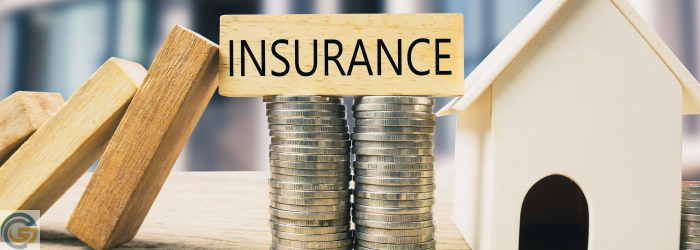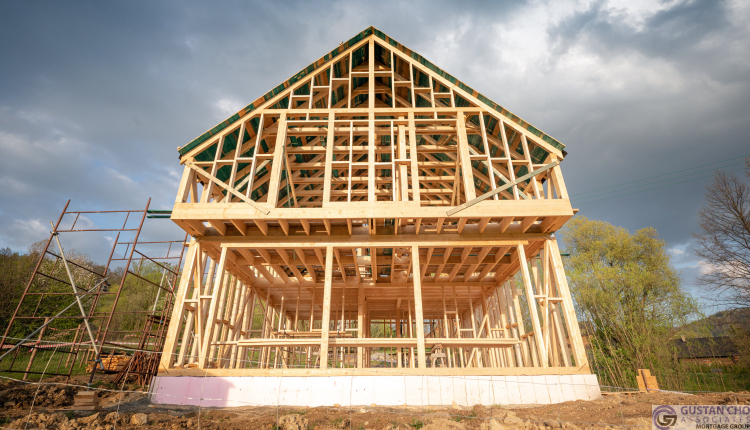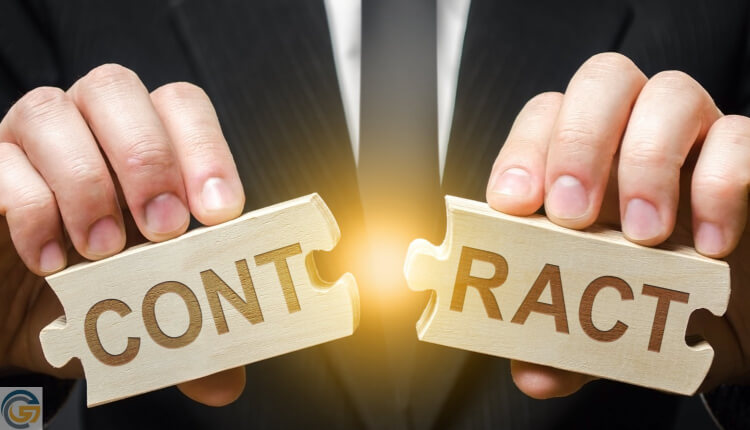Shopping for Homeowners Insurance When Buying a Home
All mortgage lenders require borrowers to start shopping for homeowners insurance premiums. You choose your hazard and fire insurance company. You are responsible for comparing premiums and selecting coverage. Dale Elenteny, a senior mortgage loan officer at Gustan Cho Associates, says the following about shopping for homeowners insurance premiums:
Shopping for homeowners insurance premiums can be a trip. Premiums can vary from a few hundred dollars a year to thousands of dollars depending on the city, county, and state.
Lenders have minimum coverage requirements to protect their interest in your property. If you fail to keep your home insured while you have a mortgage, the lender can purchase forced place insurance. The premiums are at least twice as high as normal coverage. And you’ll have to pay for it until you re-establish your coverage.
Prequalify for a home purchase in just five minutes.
Comparing and Shopping For Homeowners Insurance Coverage
When you shop for homeowners insurance, compare premiums and coverage. Homeowners’ insurance premiums vary from one insurance carrier to another. You’ll need at least the minimum lender-required coverage, but you may want additional coverage. Homeowners insurance protects you from liability if someone gets hurt on your property and loss or damages personal items in some cases, even if the property is not at home when damaged.
Shopping for Homeowners Insurance Premiums
Homebuyers with an executed home purchase real estate contract must start shopping for homeowners insurance. Lenders to see the homeowners’ insurance declaration page and invoice before drawing your loan documents. You do not have to pay for homeowners insurance upfront. The annual premium is included in your closing costs, however.

Homebuyers should get several quotes when shopping for homeowners insurance. There are captive insurance companies like State Farm, Allstate, and Farmers, where these agents can only sell their products. David Marden, a dually licensed realtor and loan officer as well as a licensed insurance agent, explains the following about shopping for homeowners insurance when buying a home:
Consulting with an insurance broker may be better because insurance brokers are not just tied to one insurance carrier and have a network of insurance carriers where they can have better pricing. Captive insurance agents can only sell the products their insurance company offers and normally cannot broker out to other insurance carriers.
Maybe Allstate Insurance’s premium might be the highest in the area you need homeowners insurance versus other insurance carriers. However, consulting with an experienced insurance broker may open access to multiple insurance companies with the most coverage at competitive rates.
Shopping For Homeowners Insurance With High Debt-to-Income Ratio
Shopping for homeowners insurance premiums can save you a lot of money. Sometimes, borrowers have higher debt-to-income ratios and need to lower their monthly expenses. Homeowners insurance is part of P.I.T.I. (Principal, Interest, Taxes, Insurance).
One area loan officers advise borrowers who need to lower their debt-to-income ratios is homeowners’ insurance. In some cases, I have seen borrowers lower their monthly homeowners’ insurance premium by $50,00 per month just by shopping for homeowners insurance. The key is the most coverage possible with the least insurance premium.
Ensure plenty of content coverage and the minimum coverage required by the lender. Many insurance companies will offer volume or package family discounts on insurance premiums for policyholders who have all of their insurance, such as car and health insurance, along with their homeowners’ insurance. For example, if policyholders combine their auto, health, and life insurance policies with their new homeowner’s insurance policy, the insurance carrier might offer a volume discount. Consult with an insurance broker about group discount premiums.
Get a custom mortgage rate quote now.
Crisis in Florida Shopping For Homeowners Insurance
Frequently asked questions about the crisis in Florida for shopping for homeowners insurance, FAQ:
- Why is homeowners insurance getting so expensive in Florida?
- Where’s the blame for insurance going up?
- Reasons why homeowners get cut from their policies
- How things are changing with property insurance in Florida.
- How much does homeowner’s insurance cost in Florida?
- What is the insurance forecast for 2023?
- What is the insurance forecast for 2024?
- Who is the most significant home insurer in Florida?
- Review: What does homeowner insurance cover?
- How to get the best homeowners insurance at the best price.
Why is homeowners insurance getting so expensive in Florida?
Homeowners insurance continues to be a hot topic in Florida. The property insurance crisis has resulted in skyrocketing premiums for homeowners and more than a dozen insurance companies that have stopped writing policies in the state.
Many homeowners insurance companies are pulling out of Florida, restricting coverage, and raising rates, making it hard to find affordable home insurance in Florida. This is due to Florida’s increased risk of expensive storm damage.
Hurricane Ian caused further instability in the insurance market, with record numbers of homeowners looking to last-resort insurer Citizens. In June of 2022, insurance provider Southern Fidelity went bankrupt and was liquidated. Soon after, in August, Weston Property & Casualty Insurance of Coral Cables also closed its doors and canceled all policies.
Where’s the Blame For Skyrocketing Homeowners Insurance Premiums in Florida
Climate change, rising costs to rebuild or make repairs, and a sharp increase in the premiums from reinsurance companies that insurers use to limit their risks are causing astronomical increases in insurance. Therefore, homeowners insurance is rising across Florida, and it will get worse.
Homeowners are already being warned just days into the Florida hurricane season. Policyholders often have only 30 days to get new coverage, leaving agents and homeowners scrambling to find a policy. It would be the second increase this year, as the state-backed insurer of last resort continues to ensure a record number of policies, now at 1.3 million.
This rate increase would average about 14.2%, more than their previous increase, but anywhere from 30% to 100% less than policies in the private insurance market. It’s a sign the state’s insurance crisis is far from ending anytime soon. Officials told the decision-makers that Florida’s Office of Insurance Regulation is trying to offset non-weather related water losses, high reinsurance costs, and a glut of litigation.
Shopping For Homeowners Insurance Premiums
Homeowners’ insurance is skyrocketing, and people get dropped from their policies. Risks are high: Mostly, people want to live near or on the coast. It’s a big part of Florida’s appeal, and with a large amount of risk to mitigate, property insurance will get complicated.
Citizens Property Insurance Corporation maintains a socialized organization to assist homeowners with problems they might have with acquiring property in the private market. The mid-2000s brought on a market distortion, pushing it towards this option and, therefore, a less private market.
Taxpayers get hit if the Citizens Property Insurance Corp gets many claims from a bad storm for a year or two. Insurance companies may reduce their exposure to these risks by dropping certain policyholders.
Shopping For Homeowners Insurance Premium With High Claims Frequency
If an insurance company experiences a higher-than-expected number of claims from policyholders in a particular area, they may discontinue coverage for those policyholders to mitigate their financial risks.
Insufficient Underwriting Criteria Shopping For Homeowners Insurance
Insurance companies carefully assess the risks of insuring a property before offering coverage. In some cases, changes in underwriting standards may lead to policyholders needing to meet the company’s criteria, resulting in the termination of their coverage.
Regulatory Changes Shopping For Homeowners Insurance
Changes in state regulations or laws regarding homeowners insurance may prompt insurance companies to adjust their business strategies. This could include dropping policyholders who no longer fit within the new regulatory framework.
Financial Considerations Shopping For Homeowners Insurance
Insurance companies must maintain a financially stable business model to fulfill their obligations to policyholders. Suppose a company’s overall financial health is at risk or experiencing financial difficulties. In that case, they may need to reduce their exposure to specific markets or areas, which could result in policy cancellations.
Changes In Insurance Benefit Shopping For Homeowners Insurance Companies
Things are changing rapidly with property insurance in Florida, which will limit the rights of homeowners. The changes are more beneficial to the insurance companies with more discretion and safeguards for their payment of claims. Some restrictions will come in the form of the homeowner’s rights to lawyer’s fees when successful in prosecuting a legitimate claim.
Suppose a homeowner’s insurance company’s conduct should require them to access the courts. In that case, the insurance companies can include mandatory, binding arbitration provisions for their policies that prevent the owner from doing that. Also, the homeowners can’t transfer their rights to a service provider, so all the burden is on the homeowner should the company fail to honor the terms of their policy.
This goes with the new rule that makes it harder for the homeowner to hold the insurance company accountable for bad-faith conduct. Citizens Property Insurance Corporation states that companies have tighter deadlines to process claims. However, the homeowners also have tight deadlines, and in the end, these changes reduce homeowners’ rights more than the company’s rights in this state.
How Much Does Shopping For Homeowners Insurance Cost in Florida?
Homeowner’s insurance costs, on average, $2,385 per year, or about $199 per month. That’s 31% more than the national average of $1,820. In most U.S. states, including Florida, many insurers use your credit-based insurance score to help set rates. According to the Insurance Information Institute, numerous insurers left the state last year. In June of 2022, insurance provider Southern Fidelity went bankrupt and was liquidated. Soon after, in August, Weston Property & Casualty Insurance of Coral Cables also closed its doors and canceled all policies.
Shopping For Homeowner’s Insurance Forecast For 2023?
We forecast premiums to grow by 7.5% in 2023 and 5.5% in 2024. Slowing rate gains in commercial liability will likely be partially offset by property and personal lines acceleration. Reserve adequacy poses a critical downside risk if inflation causes losses to develop more than expected.
Will Florida Homeowners Insurance Go Up in 2024?
The rate hike plan has average overall increases of 13.1% in 2023 and 14% in 2024 for all Citizens’ lines of insurance. Officials told the decision-makers that Florida’s Office of Insurance Regulation is trying to offset non-weather related water losses, high reinsurance costs, and a glut of litigation.
Who is The Most Significant Home Insurer in Florida?
Several state insurers still offer homeowners insurance, including State Farm, Travelers, First Florida, and Nationwide. National insurers need more presence in Florida.
Big insurance companies dominate more than half the market in the rest of the country. State Farm ranks first in Florida in home insurance, offering a 21% discount for those who bundle — the highest average of any insurer in the state.
State Farm has several unique coverages for both home and auto insurance. If your homeowner’s insurance company has dropped you, it is best to contact them directly to inquire about the specific reasons for their decision and to explore alternative coverage options.
What does homeowner insurance cover?
I’m giving you this list of what homeowner insurance covers so that you can more clearly understand why Florida has some of the highest rates in the United States. The pros of living in Florida are enviable. You have to decide for yourself what your priorities are.
Homeowner insurance covers
Dwelling Coverage: This covers physical aspects of your home, like fire, windstorms, lightning, and vandalism. It includes the walls, roof, floors, and other attached structures like garages or sheds.
Other Structures Coverage
This covers structures on your property that are not attached to your primary dwellings, such as fences, detached garages, or sheds.
Personal Property Coverage
This covers your personal belongings inside your home, including furniture, appliances, clothing, electronics, and other valuables. Coverage typically applies to perils such as theft, fire, vandalism, or certain natural disasters.
Liability Coverage
This protects you financially if you are found responsible for injuries or damage to someone else’s property. It covers legal defense costs and any settlements or judgments against you.
Additional Living Expenses Coverage
If you cannot live in your home after the covered peril, this covers living expenses, such as hotel bills, meals, or temporary rentals, until your home is repaired or rebuilt.
Medical Payments Coverage
No matter the fault, if a person gets injured on your property, this covers the expenses. It typically covers immediate medical treatment and can help avoid legal disputes. It’s important to note that the specific coverage and policy limits will vary due to your present insurance provider and your policy type. It’s advisable to carefully review your policy documents and consult with your insurance agent or company for a detailed understanding of what is covered and any policy exclusions or limitations. To get the best homeowners insurance at the best price, follow these steps:
Assess Your Needs
Evaluate the coverage you require for your home. Consider factors like the value of your home, its contents, any specific risks in your area, and personal liability coverage. Understanding your needs will help you find the right coverage without overpaying for unnecessary features.
Shopping For Homeowners Insurance and Comparing Quotes
Obtain quotes from multiple insurance companies to compare prices and coverage options. Contact different insurers directly or use online comparison tools to gather quotes efficiently. Provide accurate information to receive accurate quotes for comparison.
Increase Your Deductible
A deductible is paid out of pocket before your insurance coverage kicks in. You can often lower your premium costs by opting for a higher deductible. Assess your financial situation to determine the highest deductible you can comfortably afford.
Bundle Your Policies
Consider bundling your homeowner’s insurance with other policies like auto or life insurance from the same provider. Insurance companies often offer discounts for multiple policies, which can help reduce your overall premium costs.
Enhance Home Security
Invest in security measures such as burglar alarms, deadbolts, smoke detectors, or a home security system. Insurance companies may offer discounts for such safety features, as they can reduce the risk of theft or damage.
Seek Out Discounts Shopping For Homeowners Insurance
Inquire about any discounts available to you. Insurance companies often provide discounts for various reasons, such as being claims-free, having a good credit score, being a non-smoker, or being part of specific professional associations. Ask each insurance provider about their discounts and take advantage of them.
Maintain a Good Credit Score
Many insurance companies consider credit scores when determining premiums. Maintaining a good credit score can lower your insurance costs. Pay bills on time, reduce outstanding debt, and monitor your credit report regularly.
Consider the Company’s Reputation and Customer Service
Research the reputation of the insurance companies you are considering. Look for customer reviews, ratings, and feedback regarding claims handling, customer service, and overall satisfaction. Choose a company that has a positive track record in serving its policyholders.
Review Policy Coverage
Carefully review the coverage options offered by each insurance company. Ensure they align with your needs and adequately cover your home and belongings. Don’t focus solely on price; consider the coverage and policy terms.
Assess the Insurer’s Financial Stability
Check the financial strength and stability of the insurance companies you are considering. Independent rating agencies like A.M. Best or Standard & Poor provide ratings that can help you assess an insurer’s ability to meet financial obligations. Choosing a financially stable insurer is vital to ensure they can fulfill claims.
Seek Advice From an Insurance Agent
Consult an independent insurance agent if you find the process overwhelming or have specific questions. They can provide personalized guidance, help you navigate options, and find the best coverage at the best price. Remember to balance affordability and adequate coverage when choosing homeowners insurance. The “best” price doesn’t necessarily mean the lowest cost; it’s about finding a reliable insurer that offers competitive pricing for the coverage you need and the security you want for your family.







